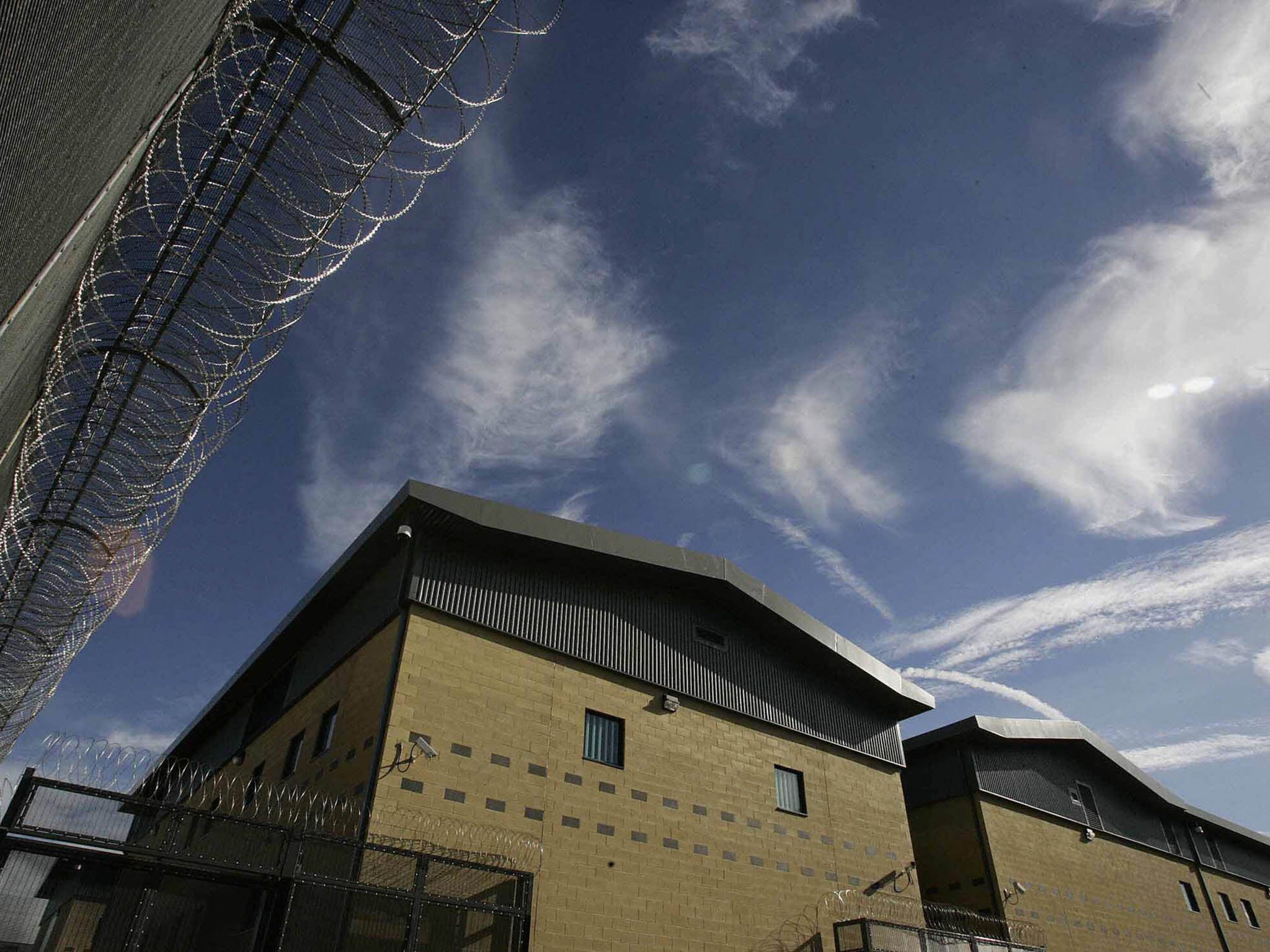Self-harm in detention centre up threefold in three years despite drop in population, report finds
Colnbrook removal centre is 'prison-like' and 'unsuitable for a detainee population', says watchdog

Self-harm among detainees in one of Britain’s largest immigration removal centres has surged threefold in the last three years despite a considerable drop in the population, the prisons watchdog has warned.
There were 65 incidents of self-harm recorded in Colnbrook detention centre during the six-month period to September 2018, compared with 20 in the same period in 2016, according to a report by the Prison Inspectorate.
The centre, which holds around 246 detainees – down from around 340 at the previous inspection in 2016 – is “prison-like” and “unsuitable for a detainee population”, who spend “long periods unnecessarily locked in rooms”, states the report.
Chief Inspector Peter Clarke said that with the exception of the women’s unit, the centre was “largely indistinguishable from a prison, and prisons are rarely suitable environments for immigration detainees held under administrative, as opposed to judicial, powers”.
Inspectors also found that Rule 35 reports, which is designed as a key safeguard for victims of torture or whose health would be at risk from continued detention, were not submitted when necessary, meaning vulnerable adults were not sufficiently well identified.
The report states that there are still too many instances of prolonged detention, including cases where detainees are granted bail but are not released because of a lack of accommodation.
The Home Office is planning to build a new centre to replace Colnbrook, and the neighbouring Harmondsworth, when the new Heathrow runway is constructed.
Mr Clarke said: “It is to be hoped that the design problems of Colnbrook, including poor ventilation and sealed windows, limited outdoor space and exercise yards that would be austere for most prisons, will be avoided in the future.
He added: “In the meantime, managers and staff were working hard to make improvements within the confines of the current environment and told us that the gaps in the systems for identifying and supporting vulnerable detainees would be quickly addressed.”
It comes after an influential group of MPs accused the Home Office of overseeing “serious failings” in almost every stage of the immigration detention process, with “irresponsible” failures by the department leading to people being wrongfully detained, held in immigration when they are vulnerable or unnecessarily detained for too long.
In a damming indictment of the system, the Home Affairs Select Committee concluded that the government had “utterly failed” to oversee the safe detention of individuals in the UK, and called for “urgent reform” to ensure it is more transparent and humane.
The Independent revealed last month that more than half of deportations from the UK are called off, raising concerns that thousands of people are being unfairly targeted for forcible removal and prompting questions over the Home Office’s “detain first, ask questions later” approach.
A Home Office spokesperson said: “Detention is an important part of the immigration system – but it must be fair, dignified and protect the most vulnerable.
“We do not detain people indefinitely, and the law does not allow it. In 2018, 92 per cent of those detained left detention within four months and 69 per cent in less than 29 days.
“We have always been clear that we expect the highest standards from detainee custody officers and others who work with detainees, and we are working closely with Mitie to make sure that all high risk detainees are properly supervised at all times.”
Join our commenting forum
Join thought-provoking conversations, follow other Independent readers and see their replies
Comments
Bookmark popover
Removed from bookmarks